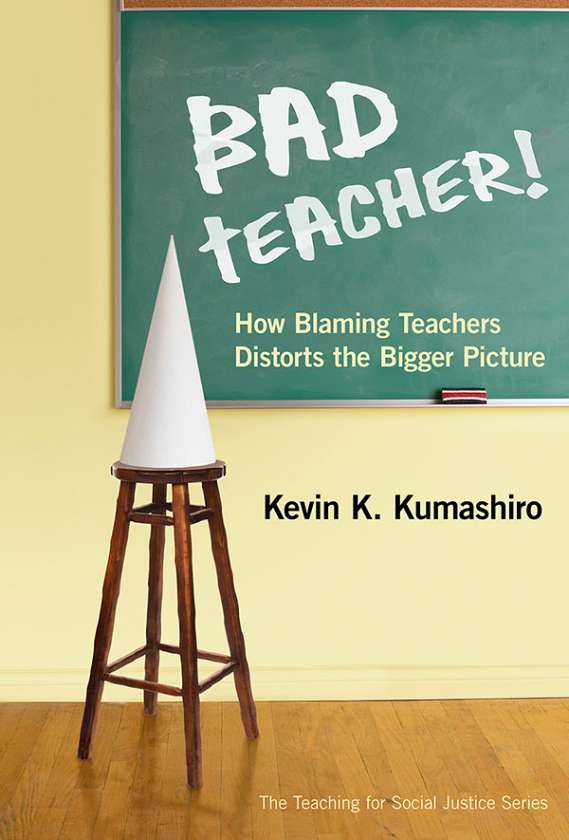 [Last week, accuracy.org put out the news release “Kozol: Biden Opposed School Desegregation, Refuses to Disown, It Wasn’t About ‘Civility.’” Kozol appeared Monday evening on the syndicated radio program “Flashpoints” and this morning on “Democracy Now!”: “Jonathan Kozol: Joe Biden Didn’t Just Praise Segregationists. He Also Spent Years Fighting Busing.”]
[Last week, accuracy.org put out the news release “Kozol: Biden Opposed School Desegregation, Refuses to Disown, It Wasn’t About ‘Civility.’” Kozol appeared Monday evening on the syndicated radio program “Flashpoints” and this morning on “Democracy Now!”: “Jonathan Kozol: Joe Biden Didn’t Just Praise Segregationists. He Also Spent Years Fighting Busing.”]
KEVIN KUMASHIRO, kevin at kevinkumashiro.com, @kevinkumashiro
Kumashiro is former dean of the School of Education at the University of San Francisco, and author of the book, Bad Teacher!: How Blaming Teachers Distorts the Bigger Picture.
He said today: “Sen. Bernie Sanders proposed on Monday to cancel the entire $1.6 trillion in student debt. Rep. Ilhan Omar is introducing parallel legislation in the House. Sanders’ proposal exceeds those by Sen. Elizabeth Warren and Julian Castro, and accompanies his previous call to make public universities and colleges tuition-free.
“The level of student debt is egregious, harming not only individual workers but also the overall economy, and proposals to cancel debt and to waive tuition push our country to create budgets that reflect our values and priorities. However, as ambitious as is Sanders’ proposal, I hope that the conversation goes deeper than equitable financing for individuals, and instead, examines how to leverage public funding to address inequitable systems.
“We should not strive simply to make education more affordable, as if it’s a commodity to be enjoyed by some; rather, we should be insisting that every student have access to the very best education that we have to offer as one of the most basic and fundamental of human rights. We should not strive simply to increase access to the current educational system, given that public colleges and universities have been increasingly starved of resources over time even while serving the vast majority of the working class, communities of color, first-generation students, immigrants and refugees, English language learners, students with disabilities, and so on; rather, we should be diving more deeply in analyzing the roots of a starkly inequitable educational system, and insisting that we can do better.”